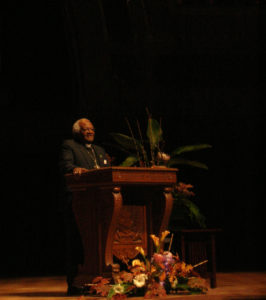
Today’s reading: 2 Kings 3; 2 Thessalonians 3; Daniel 7; Psalms 114–115
It is 8pm on Wednesday night and I’m sitting down to write my post for this week. I just walked in the door from the third funeral visitation I’ve been to in the last ten days. I still have one more to attend on Friday. I don’t particularly like attending these events, as they tend to drain my emotions and make me really tired. But I still try really hard not to miss them. I believe God puts different people in our path for different reasons. I consider it an honor and a privilege to be able come along side grieving family and friends, remember loved ones, and help provide comfort by speaking about the hope we have in Jesus Christ.
Yesterday, my friend Jane texted me for ideas on scriptures to use for her father’s funeral. One of the suggestions I gave her was Ecclesiastes 3:1-8:
For everything there is a season, and a time for every matter under heaven – a time to be born, and a time to die; a time to plant, and a time to pluck up what is planted; a time to kill, and a time to heal; a time to break down, and a time to build up; a time to weep, and a time to laugh; a time to mourn, and a time to dance; a time to cast away stones, and a time to gather stones together; a time to embrace, and a time to refrain from embracing; a time to seek, and a time to lose; a time to keep, and a time to cast away; a time to tear, and a time to sew; a time to keep silence, and a time to speak; a time to love, and a time to hate; a time for war, and a time for peace.
When we read through Ecclesiastes back in April, I wrote about this passage. I talked about how the poetic rhythm of Solomon’s journey through life’s different seasons is comforting. More important than the rhythm, however, is the incredible hope found in the illustration of God’s sovereignty. Ecclesiastes 3:1-8 reminds us that there is a season or time for EVERYTHING. As we journey through life, we experience a variety of different events, both good and bad. Because God is sovereign, meaning he has supreme power and authority, he has the ability to weave ALL these events together to accomplish his purpose. Aren’t you glad life isn’t just a series of random events? To know a master architect is fitting the pieces together for me is the hope I need to keep going, especially when I’m facing something as traumatic as the death of a loved one.
Like most people, I consider death and the memorial services that follow, to be one of life’s bad events. The room is filled with sadness, lines are long, and it is always a challenge to find just the right words to say. In reality, the words of comfort or encouragement I have to offer aren’t really mine. If it wasn’t for the faithfulness and care of a holy and gracious God, who sent Jesus Christ to be our Savior and Lord, I’m not sure what I’d say. Thank you God.
Not to us, Lord, not to us but to your name be the glory… (Psalm 115:1).








